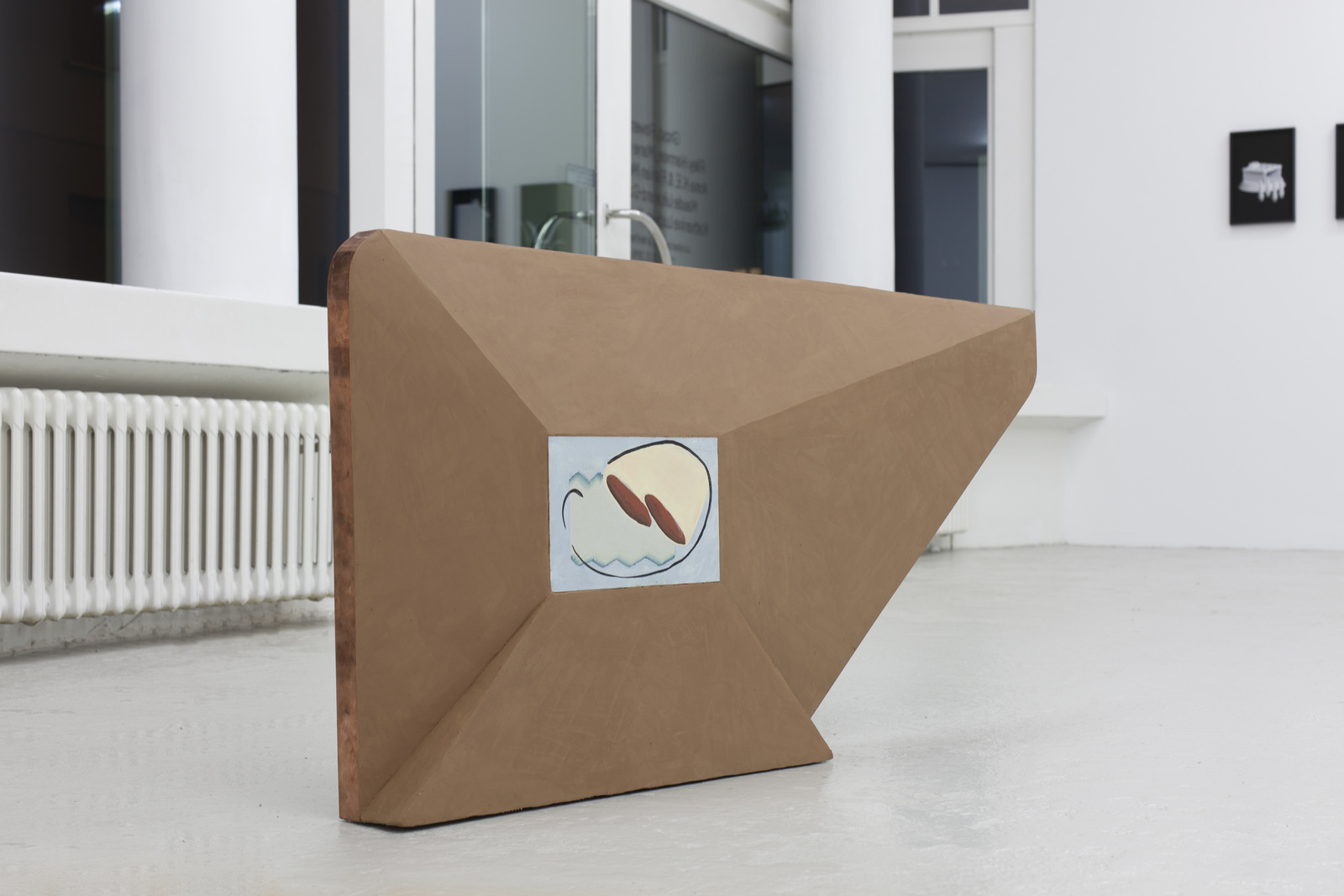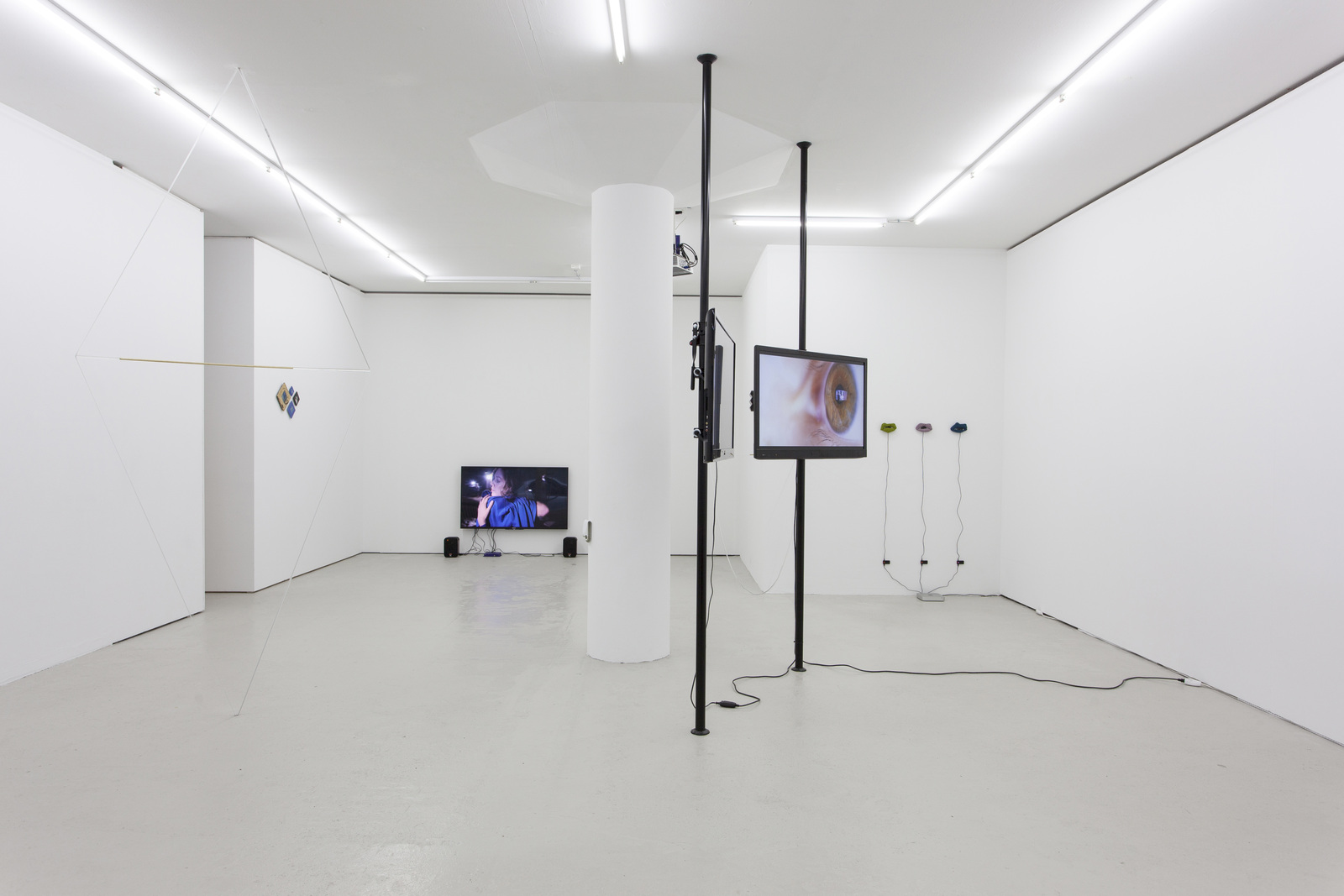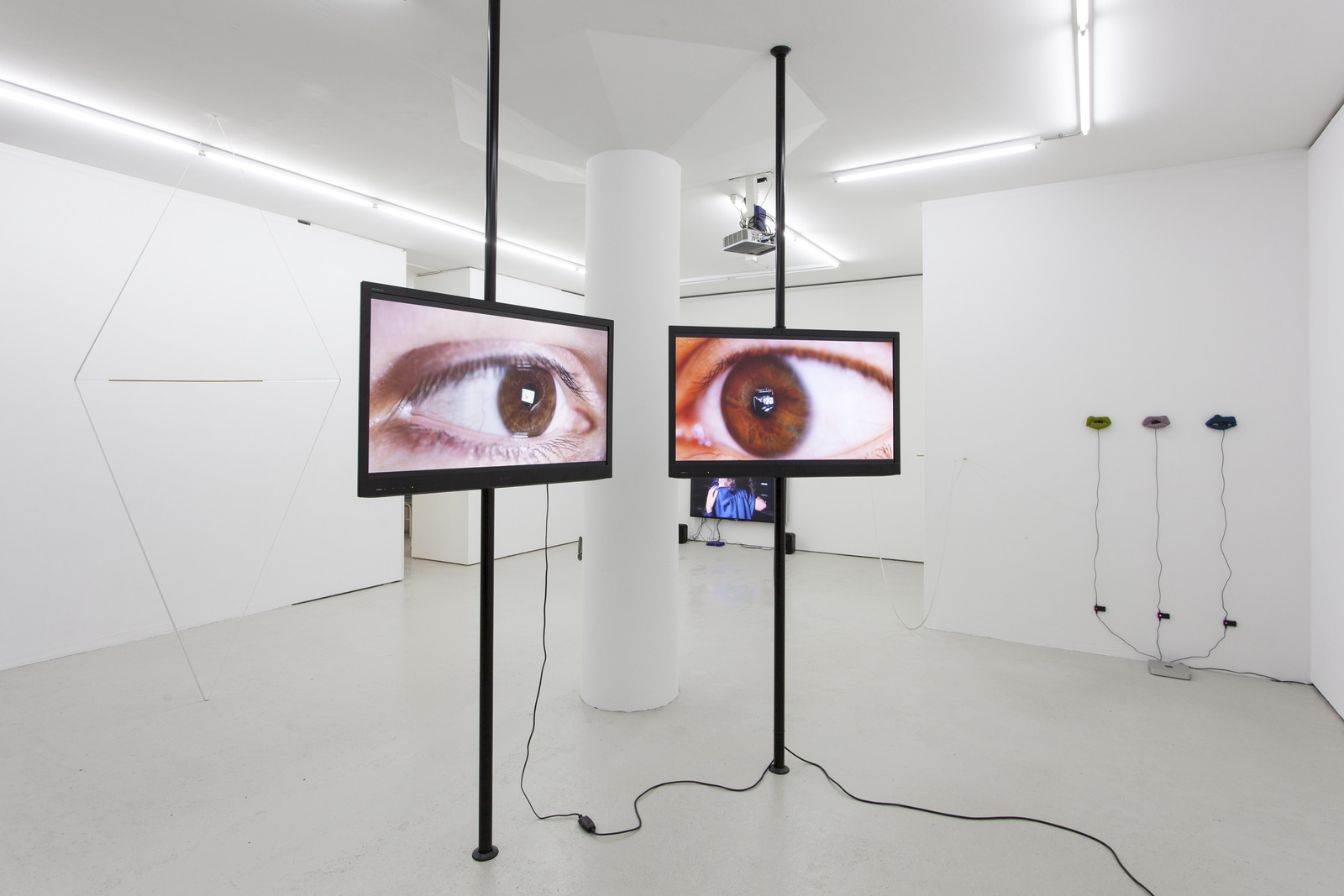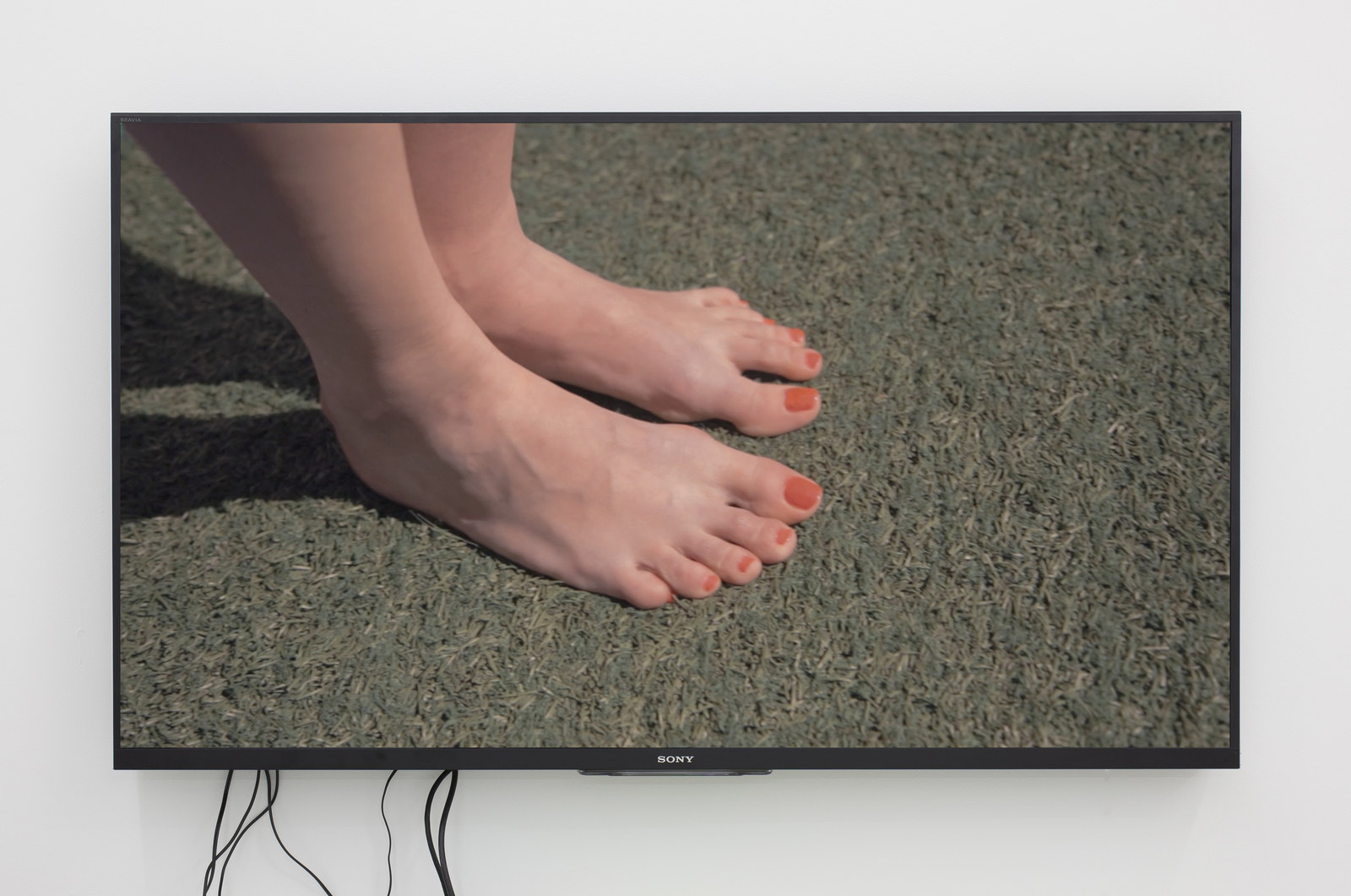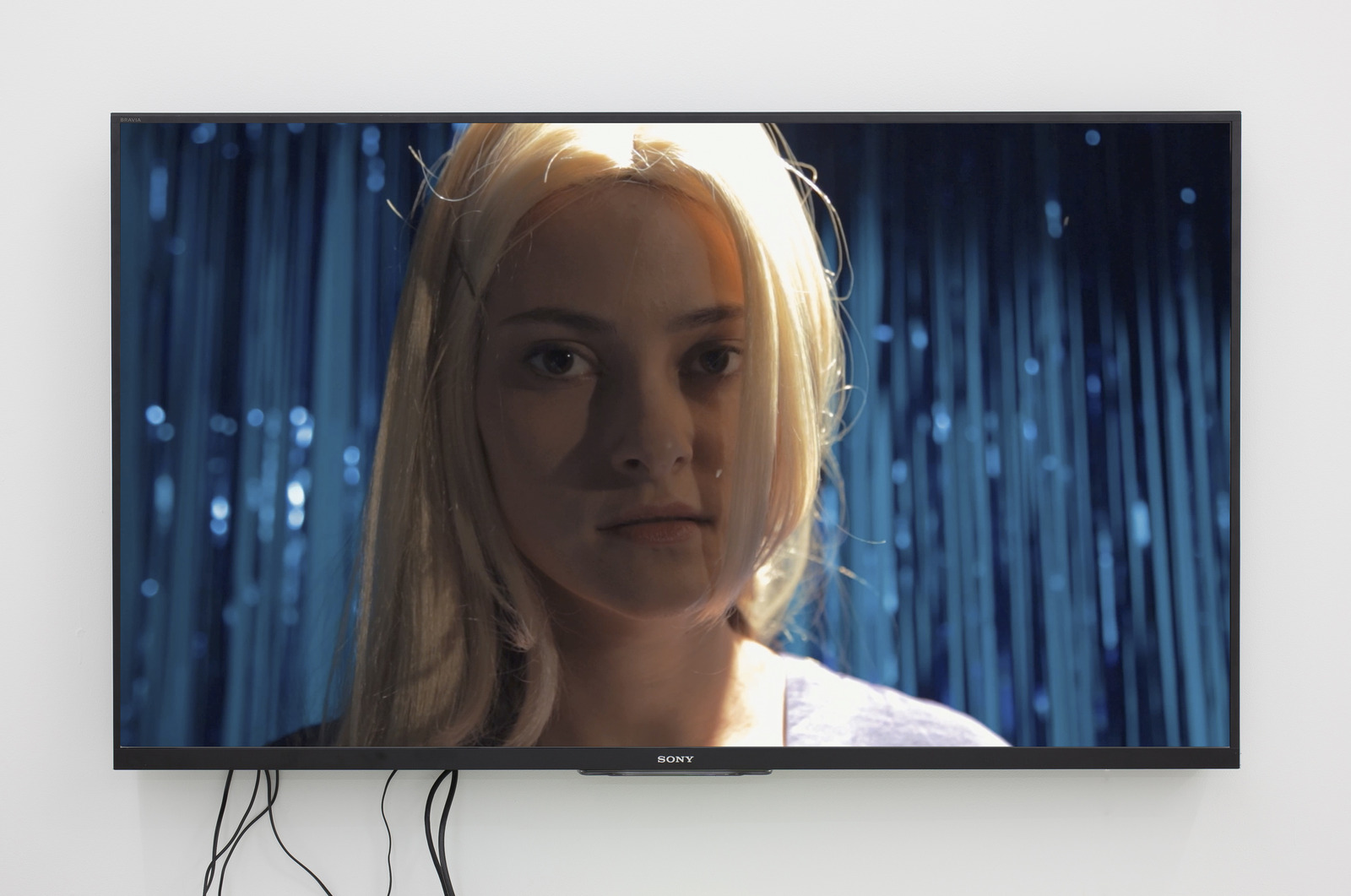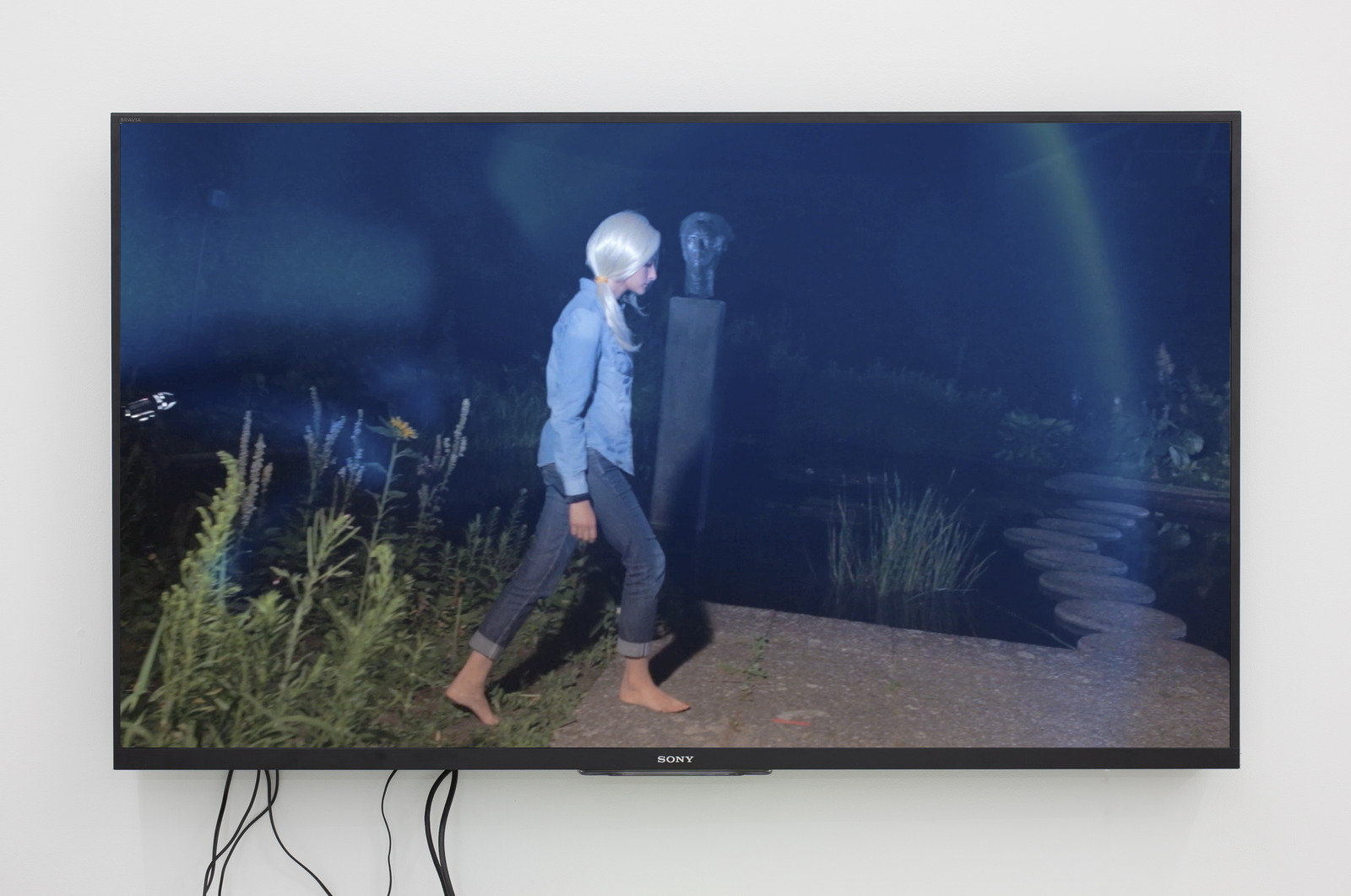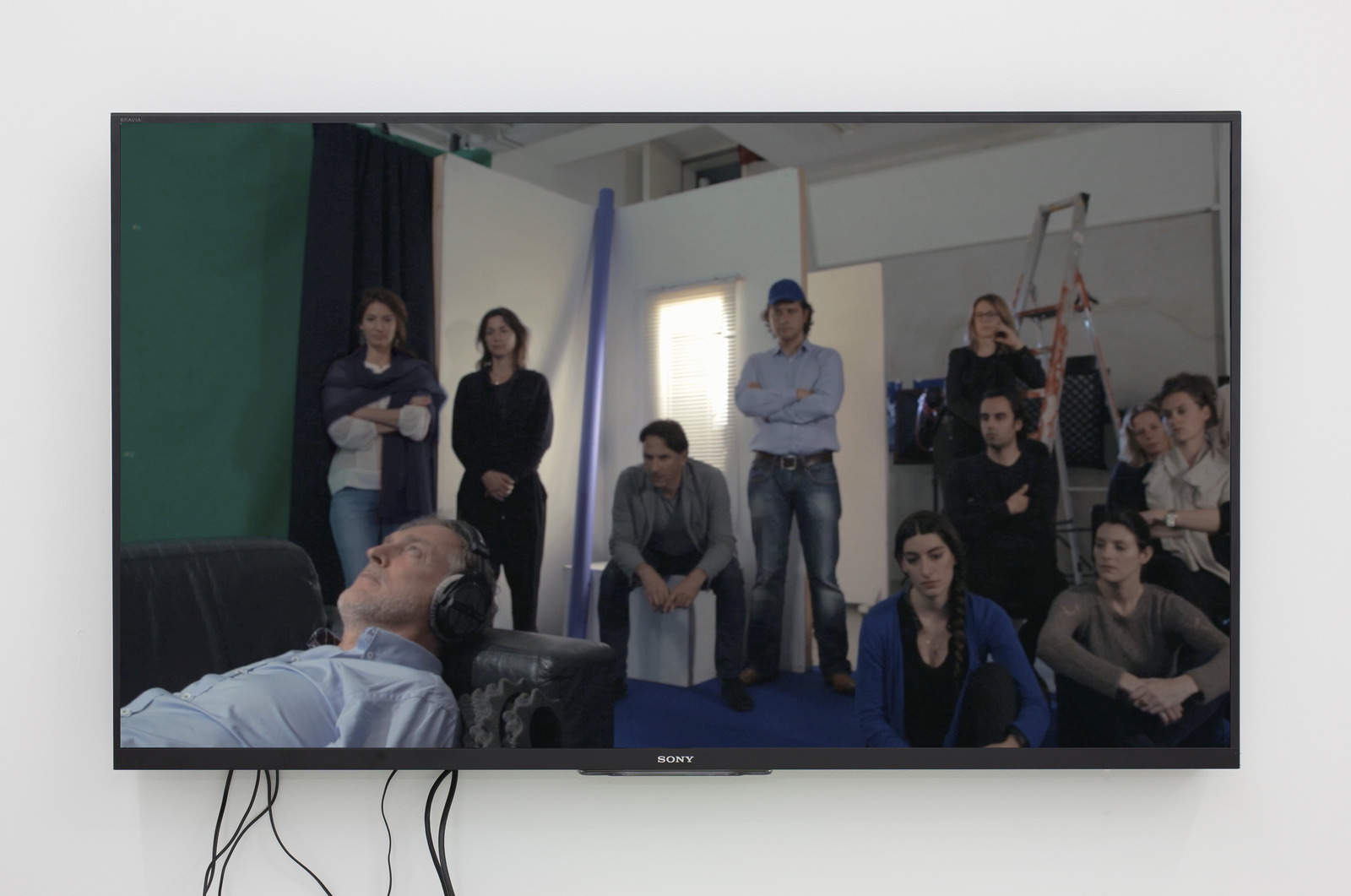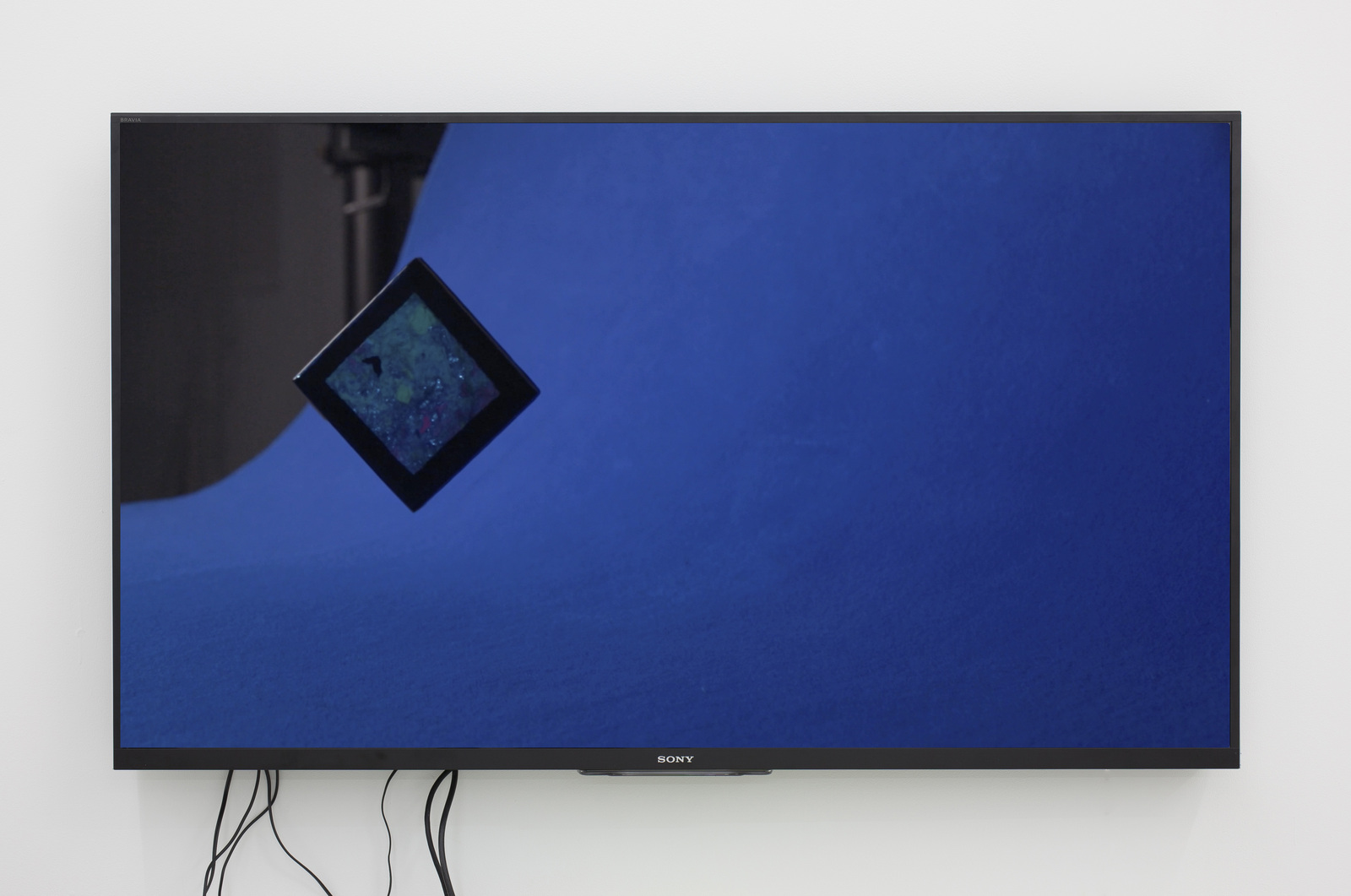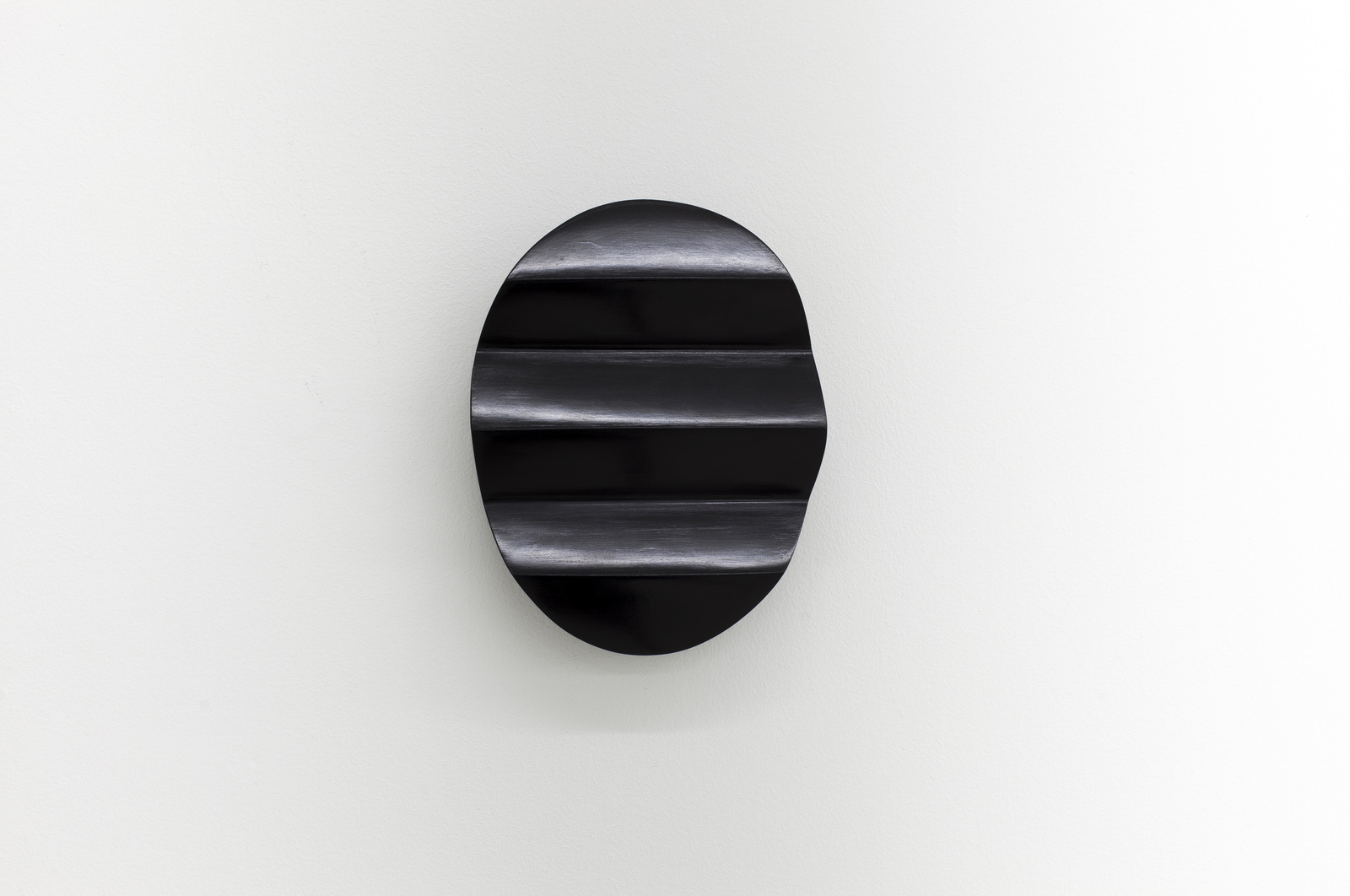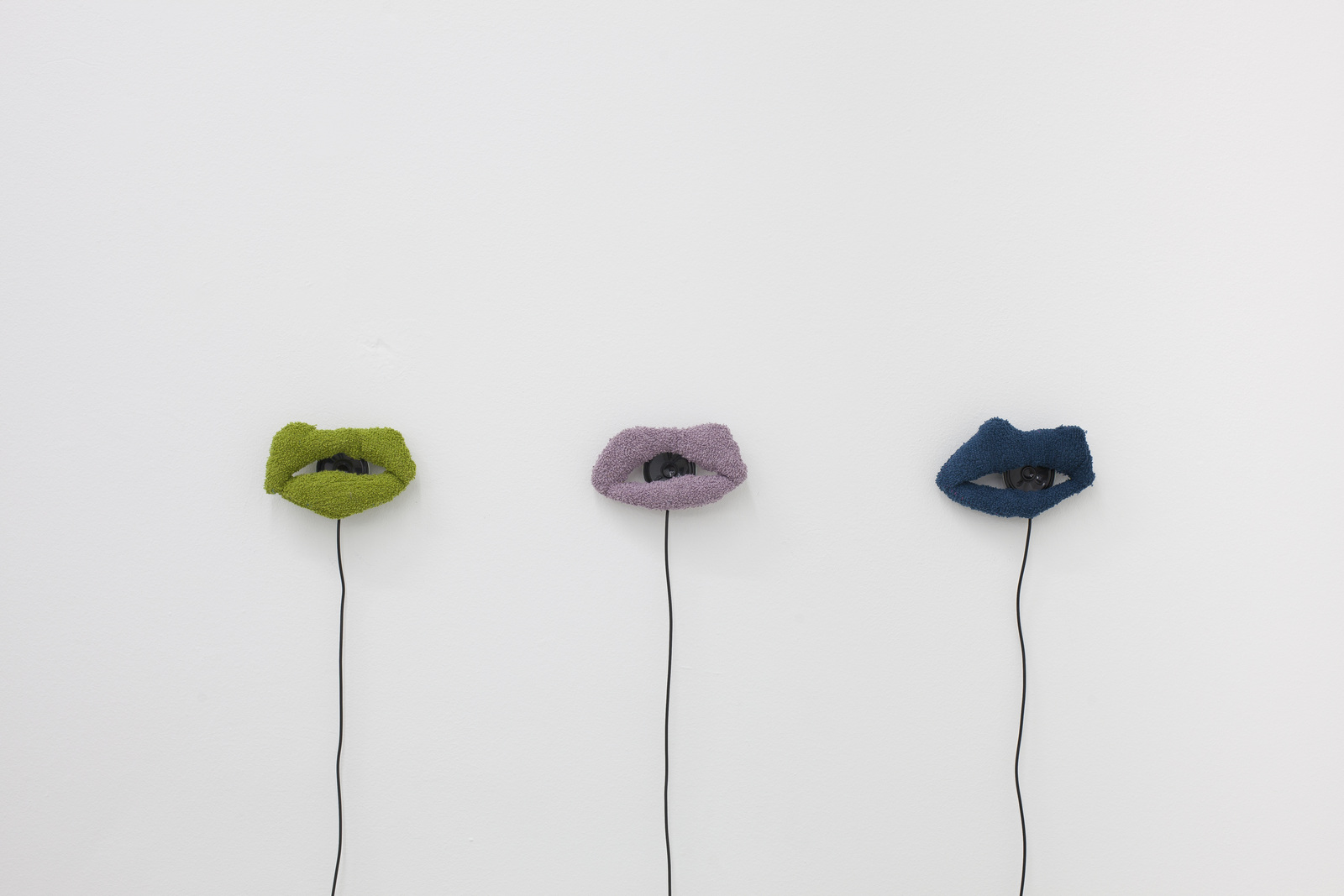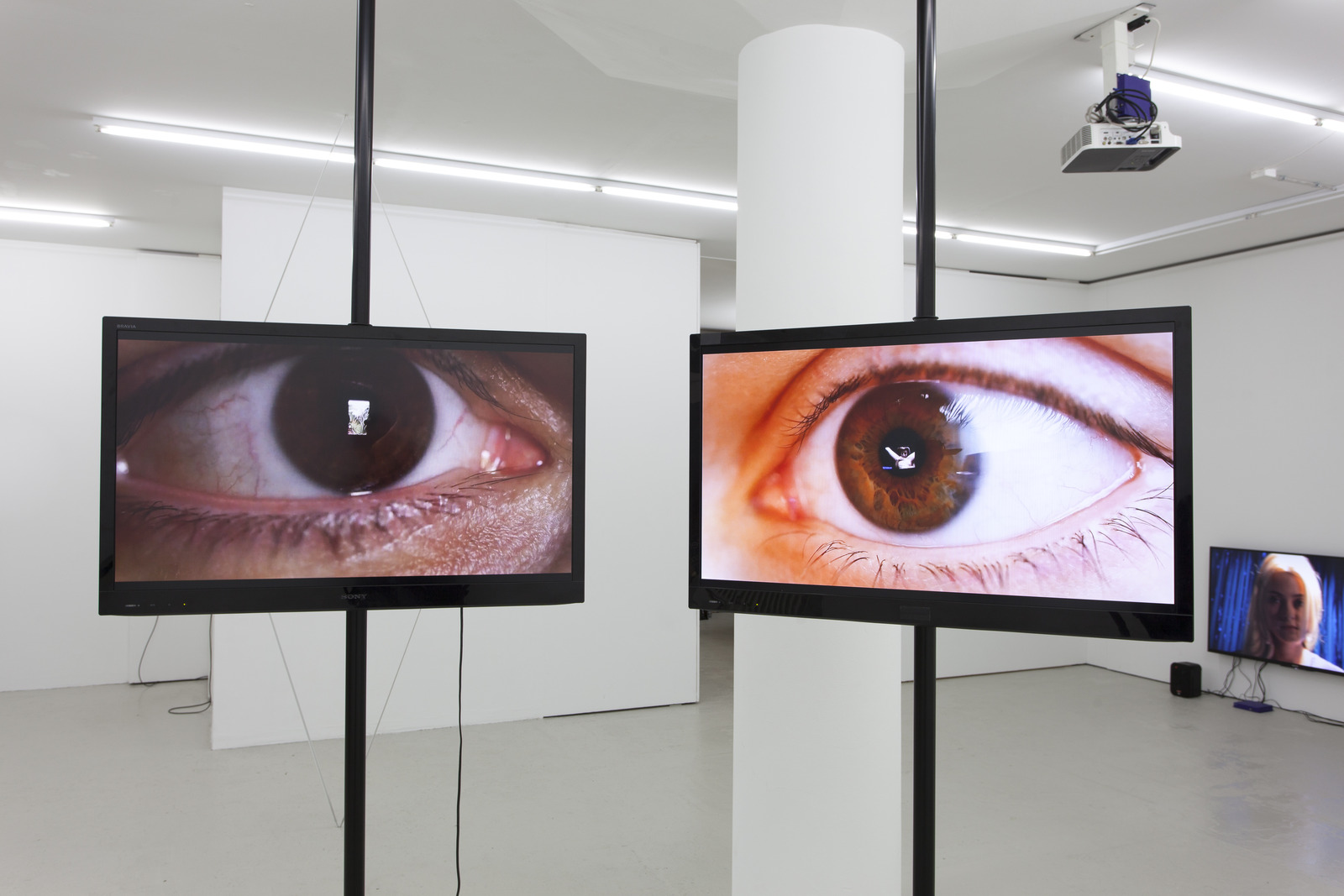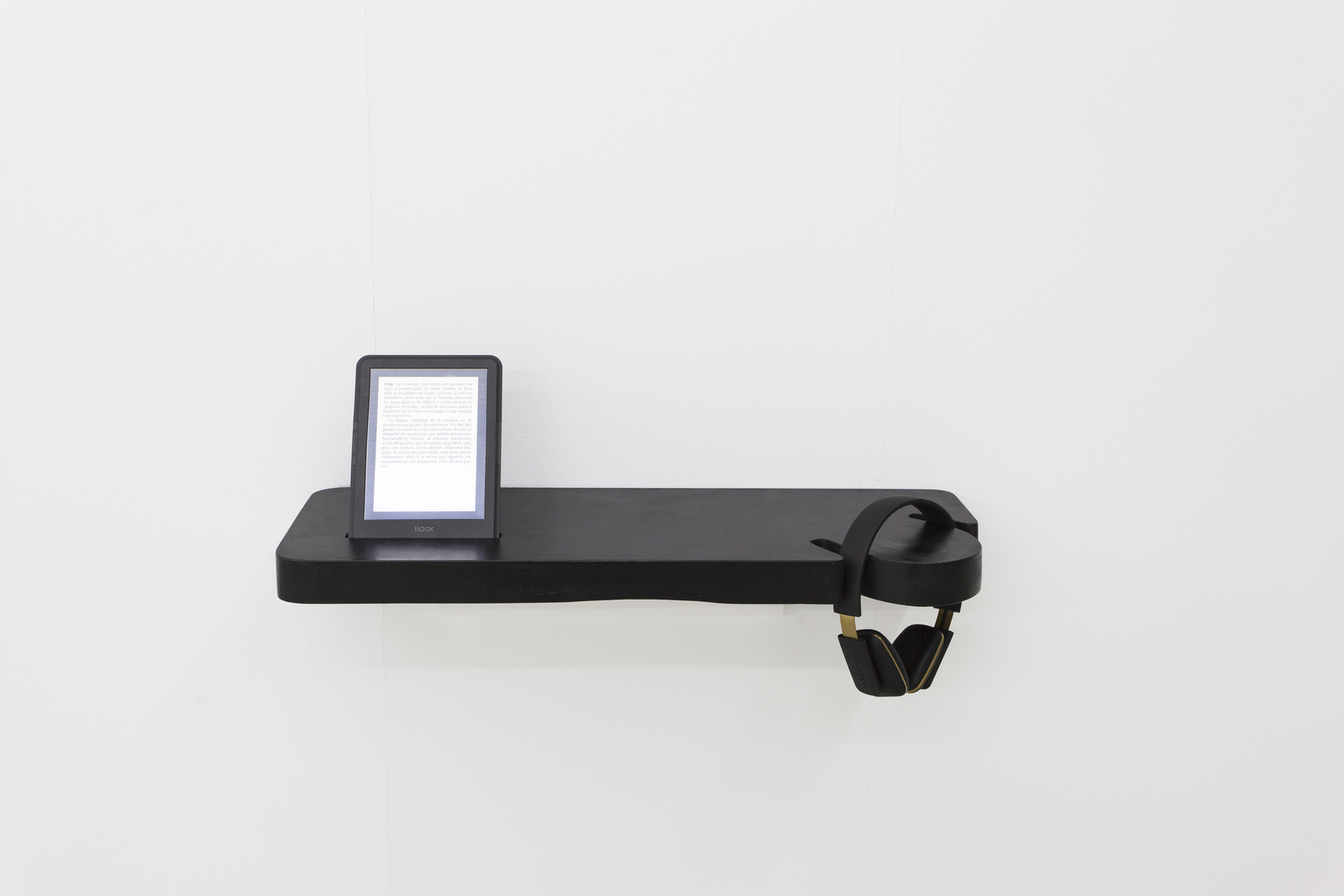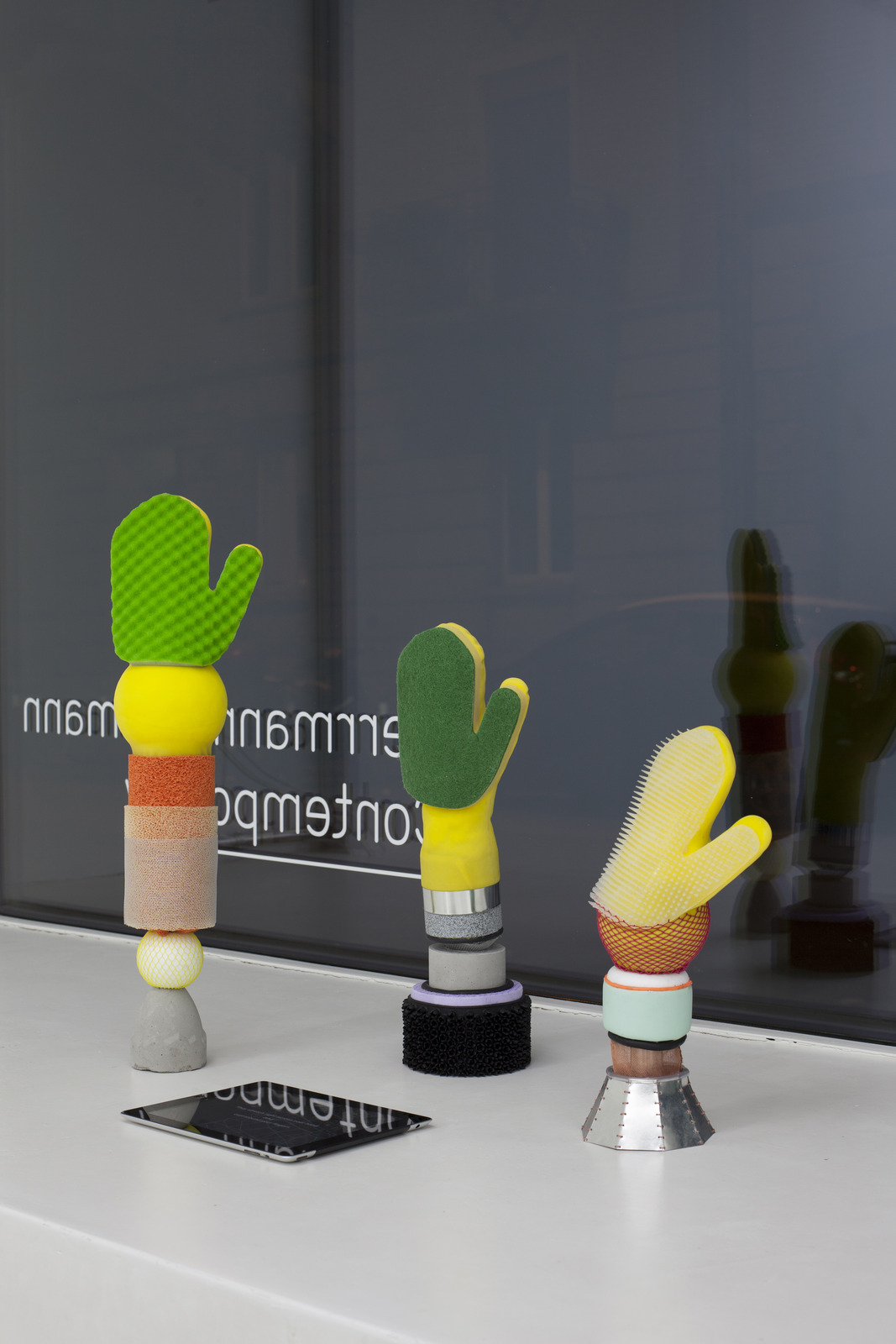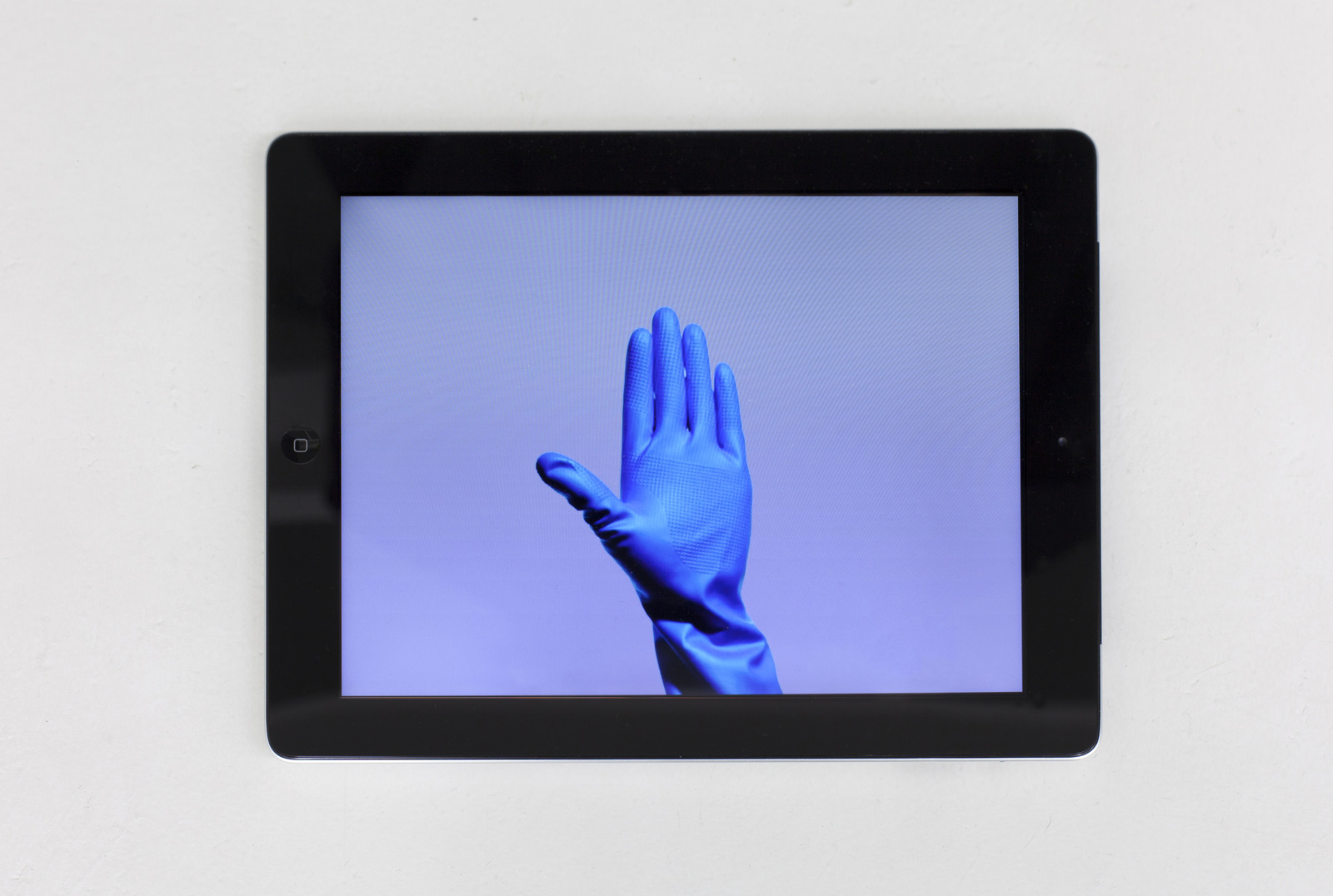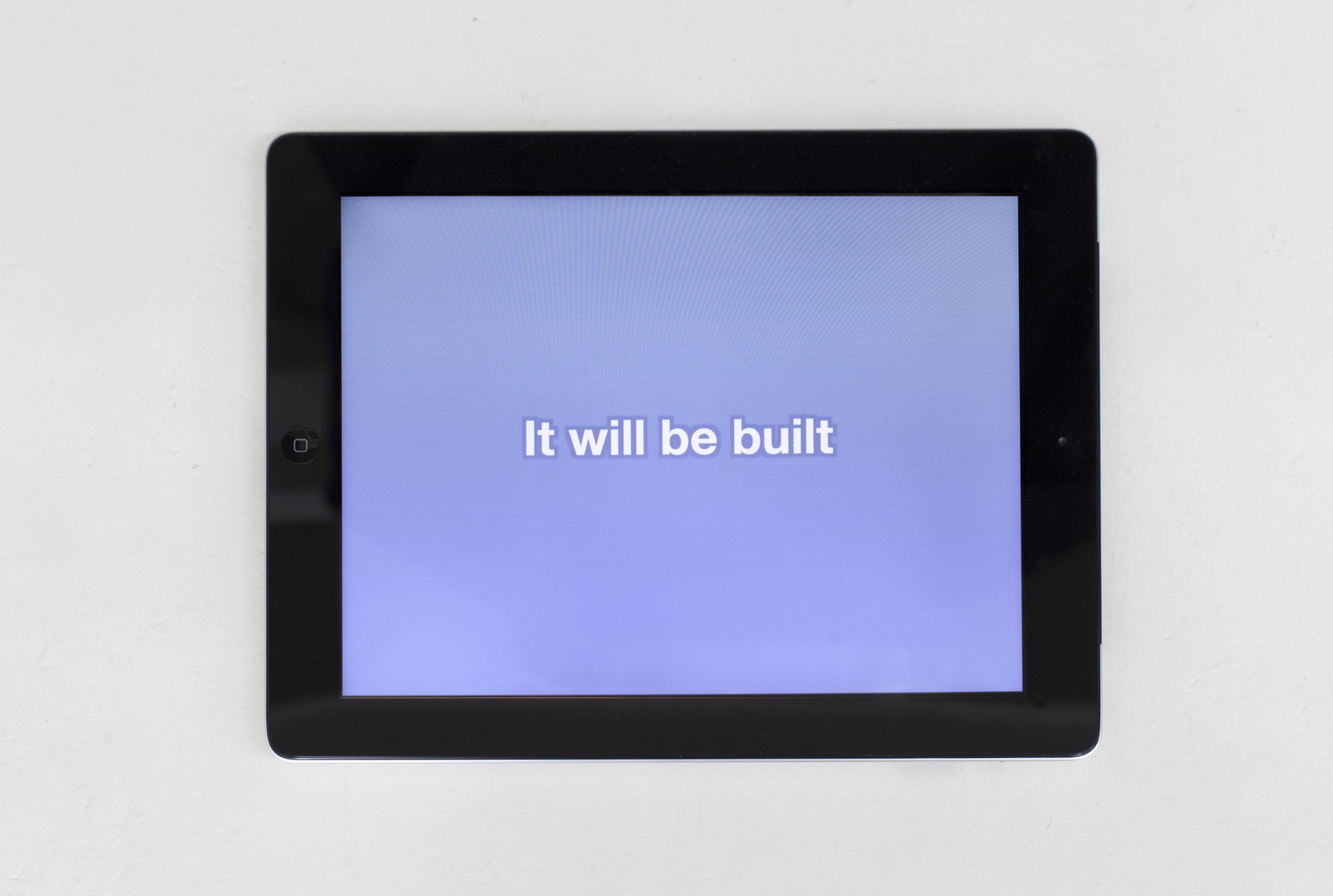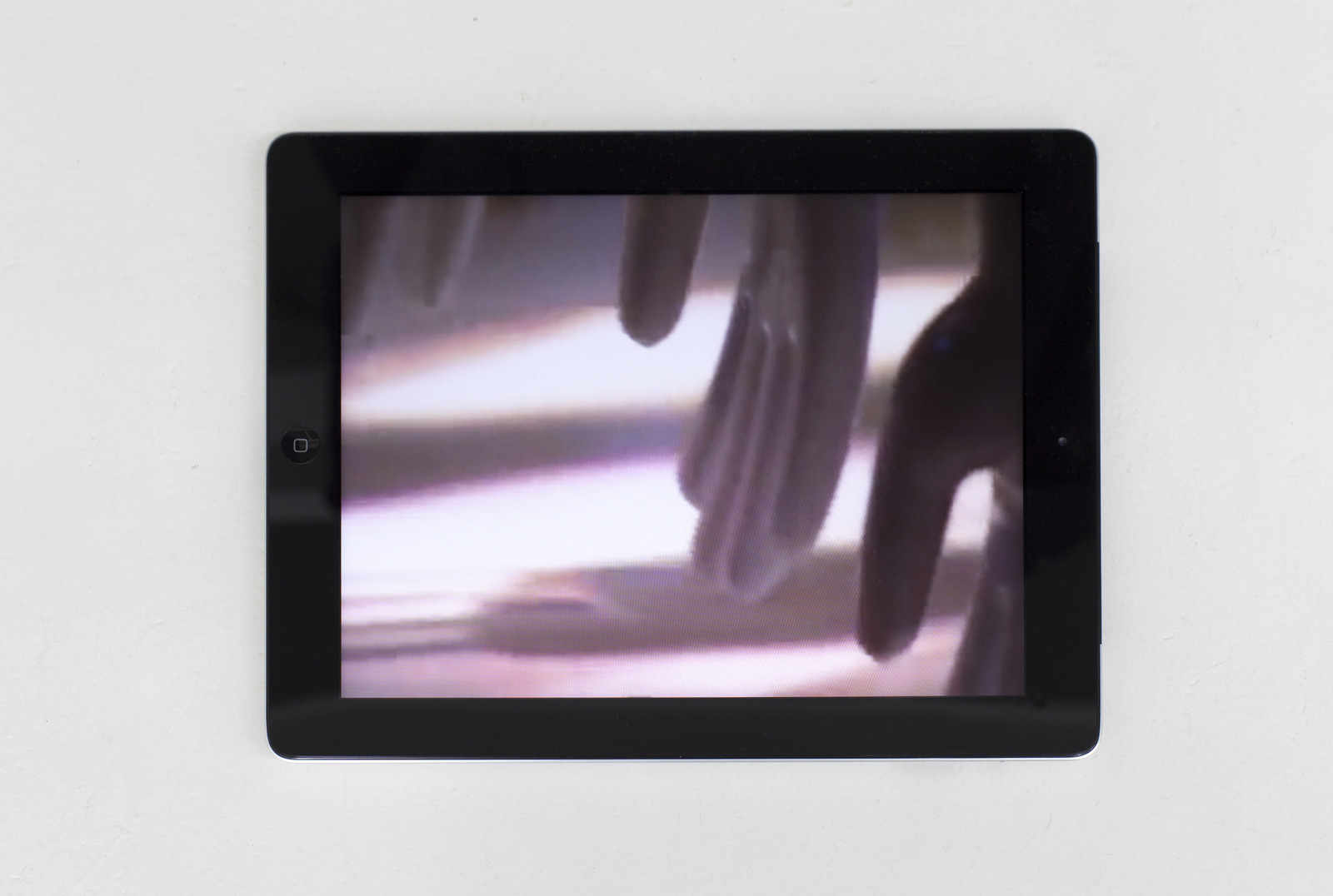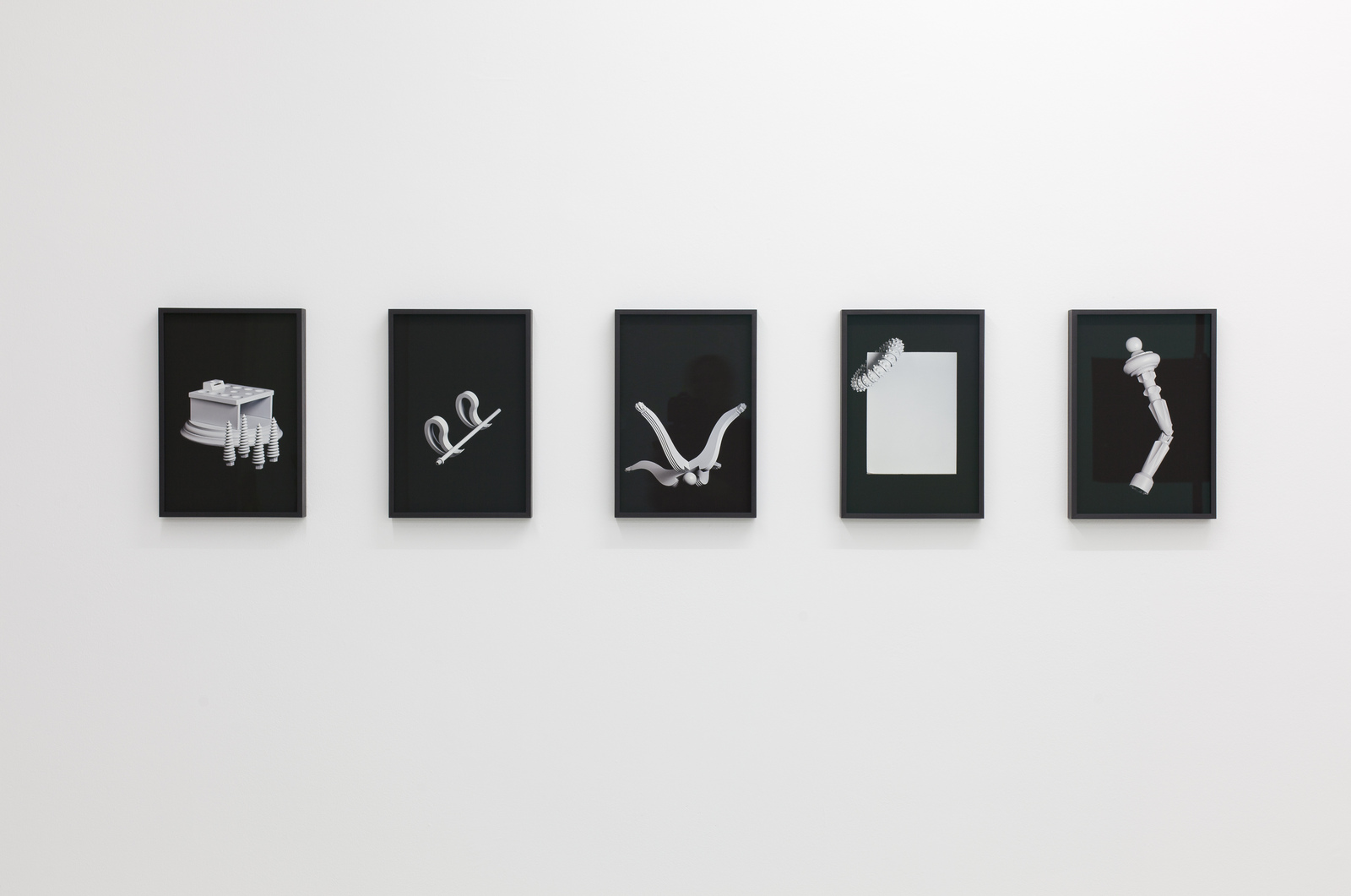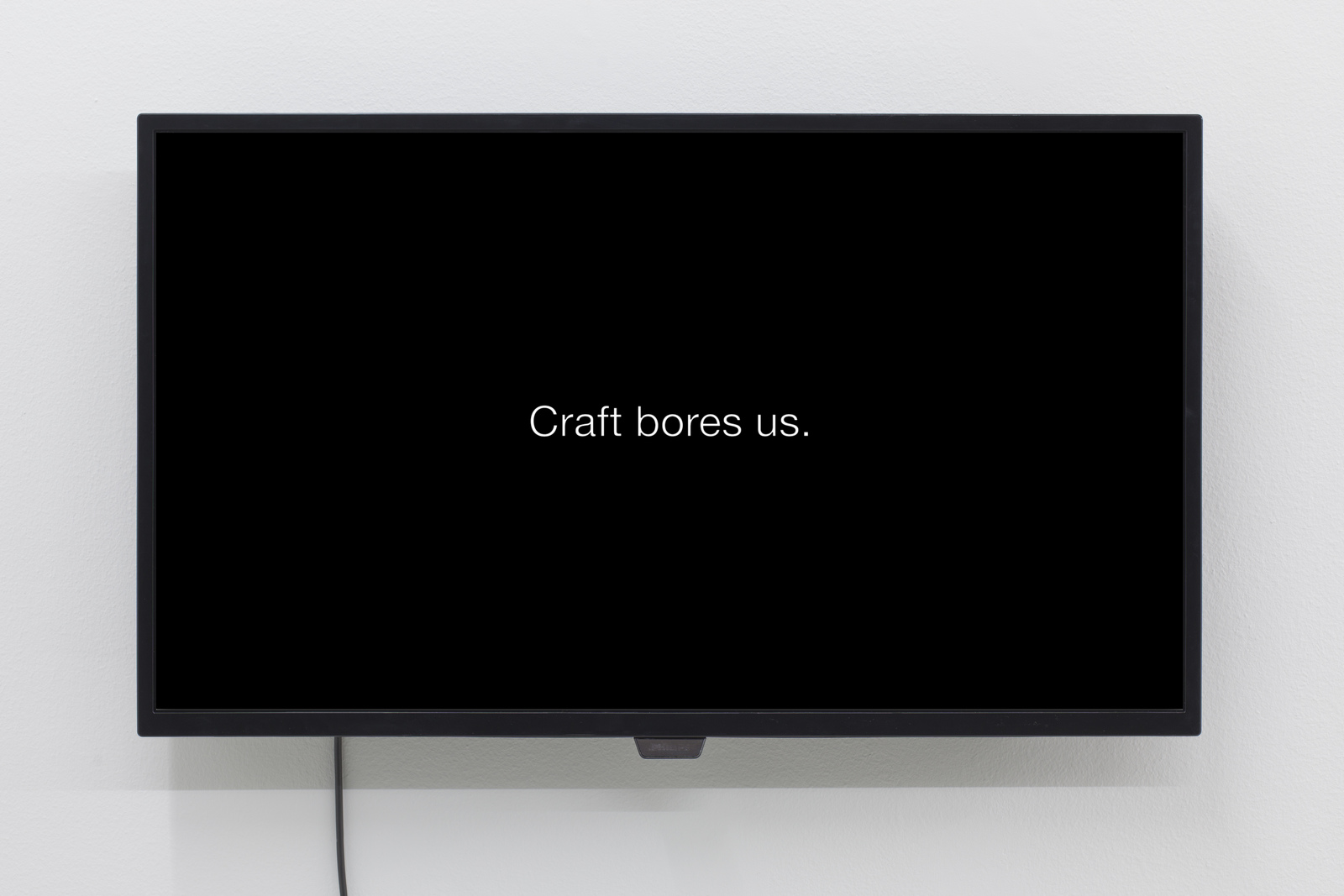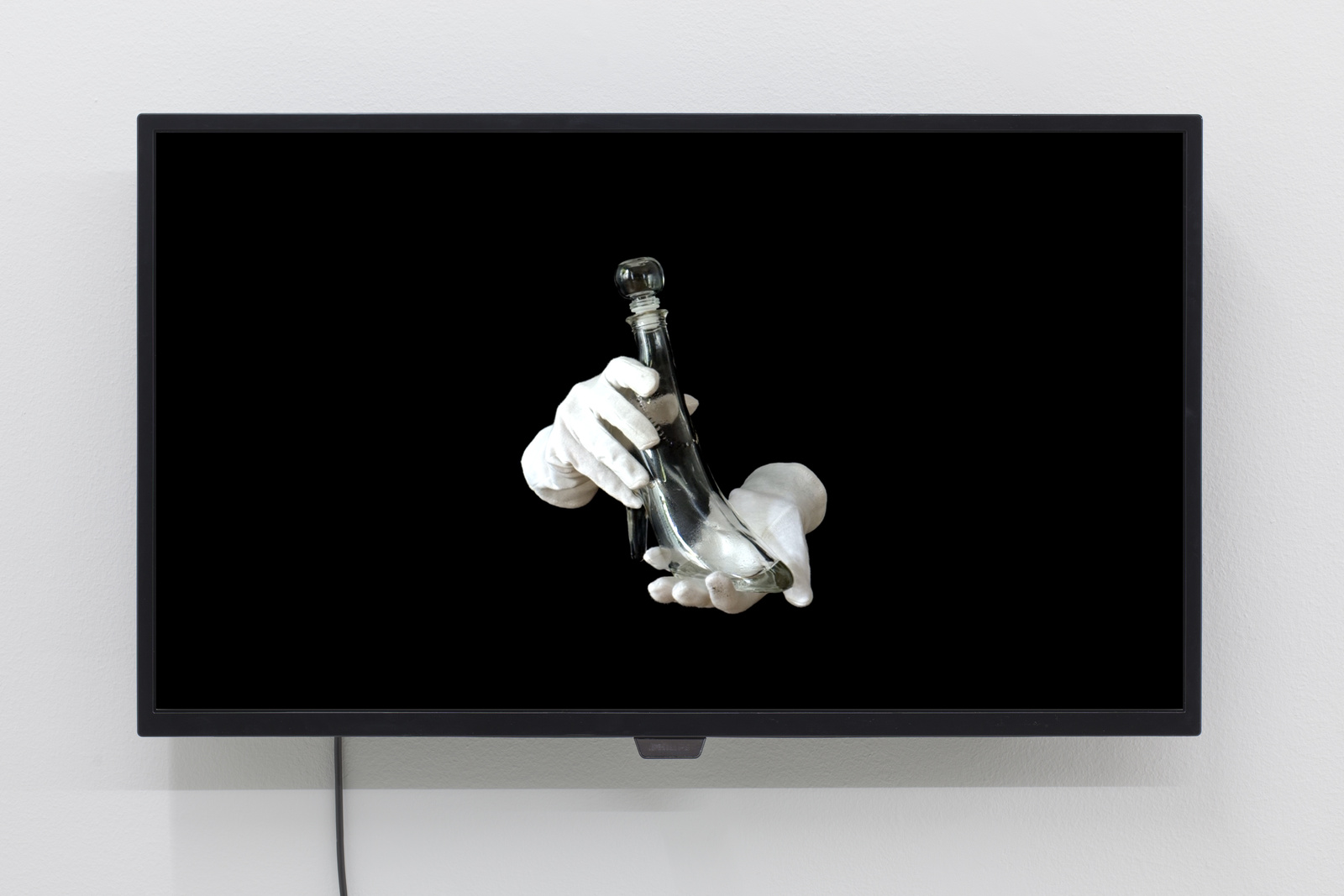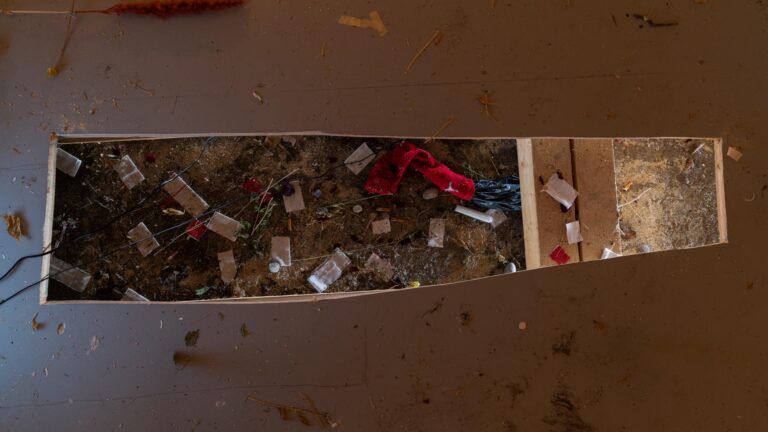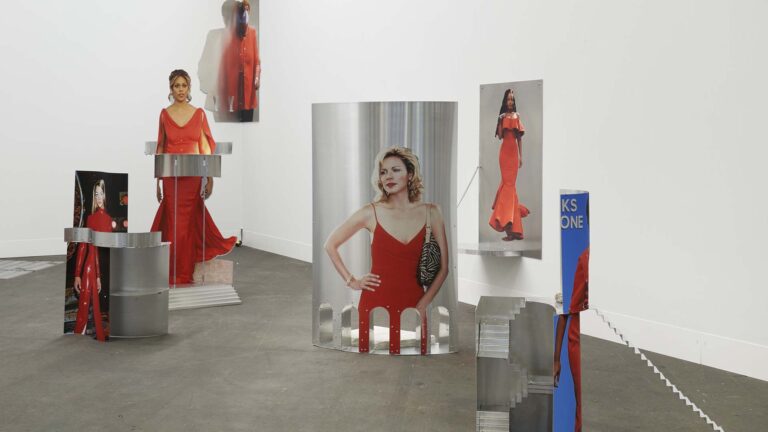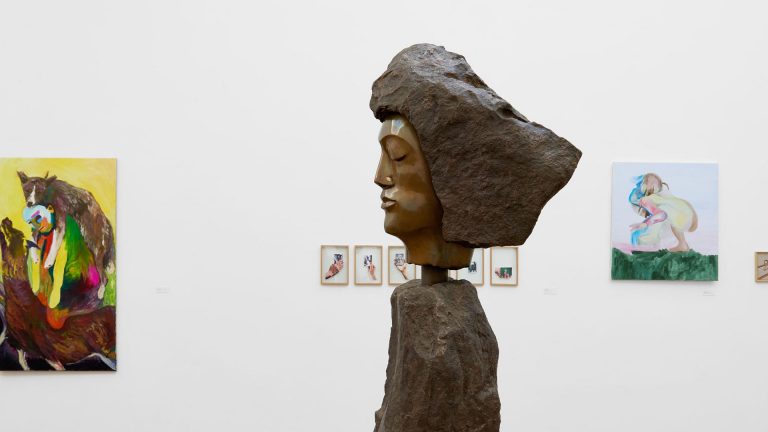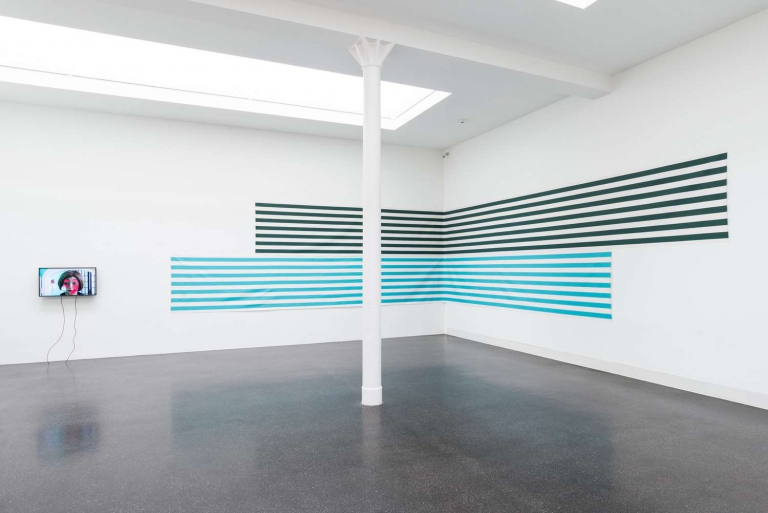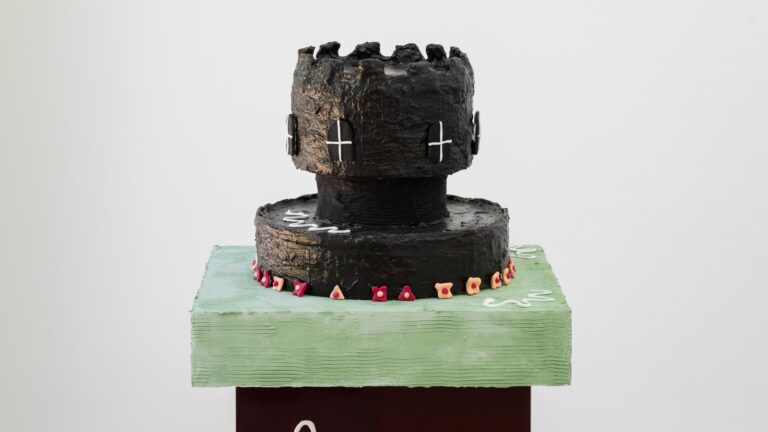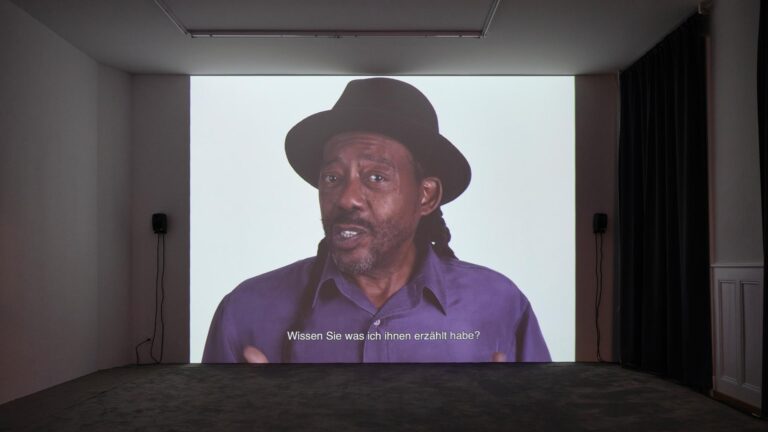Artists: Riley Harmon, Marie von Heyl, Anna K. E. & Florian Meisenberg, Maude Léonard-Contant, Katharina Ludwig, Nora Mertes
Exhibition title: Ghost Flowers
Curated by: Lea Schleiffenbaum
Venue: Herrmann Germann Contemporary, Zurich, Switzerland
Date: November 12, 2016 – January 27, 2017
Photography: all images copyright and courtesy of the artists and Herrmann Germann Contemporary, Zurich
What if you slept
And what if
In your sleep
You dreamed
And what if
In your dream
You went to heaven
And there plucked a strange and beautiful flower
And what if
When you awoke
You had the flower in your hand
Ah, what then?
— Samuel Taylor Coleridge, 18th century
The 21st century is often named the digital age. In the early 2000s we were already talking about the Post-Internet era. Everyone born after 1980 counts as a »digital native«. Digital natives seem to move effortlessly through spaces, overcoming national borders and social hierarchies. Yet are the phenomena generally credited to the digital revolution really new?
Does Coleridge’s poem from the 18th Century not suggest instead that the creation of virtual worlds is a quality inherent to the human imagination? Do I not experience emotions stirred by digital media just as keenly as I do those aroused by direct, physical experience? The exhibition Ghost Flowers at Herrmann Germann Contemporary is an undertaking to break down boundaries between virtual and real, digital and analogue and to explore both levels as experiential spaces on equal terms. The Internet will, thus, become an additional public space that we can inhabit and design.
The role-play and alter egos which define life on the net are a key element of Riley Harmon’s artistic practice. According to Harmon, the unconscious knows no difference between reality and simulation. Here images, music and dreams are dealt with like real facts. In his film A Method for Blue Logic voices off read a collage of lines Harmon sourced from an online forum, leading through dream-like visual sequences. The voices discuss a conspiracy theory that the American government has employed an actress to be a national hero. A young blond woman sings a cover of the old jazz standard Georgia on my mind.
While Harmon is engaged with role-play and myths, Nora Mertes investigates our physical appreciation of spaces and images in her spatial interventions and installations. Her works are often like experimental arrangements in which the viewer plays an active part as an observing and observable body.
Marie von Heyl bridges the sensory experience of objects and their virtual adaption. »We have no empathy with objects that give away how they were made. […] Craft bores us«, writes the artist in her Alien Object Manifesto. Her focus on surfaces is also apparent in The Occasional Table Series. Everyday objects covered with grey spray-paint look at a first glance as if they might be computer generated. Only on a closer look do small »flaws« or unevenness become visible. The misused use-objects exist somewhere on the cusp of being and seeming, between practicality and fetish.
The collaborative work Countdown Belladonna by Anna K. E. and Florian Meisenberg enables the viewer to look through the artist’s eyes in a true sense. Both videos show close-up footage of K.E. and Meisenberg’s eyes as they look at the displays of their smartphones. YouTube films, dance performances, music videos and film excerpts are seen in reflection on their pupils. The videos have a highly intimate and yet strange effect, as they bear witness to the nature of interpersonal relationships as well as the potential, though also the dangers, of the latest technical developments. The window to the soul here becomes an interface, while divergences such as man and machine, body and soul, are nullified.
A further leitmotif that runs through the exhibition is that of language. In her films, installations and objects Katharina Ludwig investigates the narrative structures that define our lives and that maintain power relationships. While objects serve her as sketches for the conceptual development of her installations, words find intuitive entry points in the works. Instead of explaining or describing, language here creates space for multi-layered interpretative approaches.
This vague and veiled method of dealing with language can also be found in Maude Léonard-Contant’s works. The texts in which the sculptor describes the material qualities and the forms and colours of not-yet-realised objects have a bewildering rather than clarifying effect. Here language becomes a virtual medium that forms new bodies. Léonard-Contant’s objects will be exhibited together with the related texts for the first time in the exhibition Ghost Flowers.
Riley Harmon, Compression Artifacts, 2015, set of 5 pcs., hydraulically compressed film set pieces and found foils, steel, cast polyutherthane resin, custom animation and projection, dimension variable
Riley Harmon, A Method for Blue Logic, 2014, detail view, edition 1/5 + 1AP, video installation, 2K DCP, 11 min
Riley Harmon, A Method for Blue Logic, 2014, detail view, edition 1/5 + 1AP, video installation, 2K DCP, 11 min
Riley Harmon, A Method for Blue Logic, 2014, detail view, edition 1/5 + 1AP, video installation, 2K DCP, 11 min
Riley Harmon, A Method for Blue Logic, 2014, detail view, edition 1/5 + 1AP, video installation, 2K DCP, 11 min
Riley Harmon, A Method for Blue Logic, 2014, detail view, edition 1/5 + 1AP, video installation, 2K DCP, 11 min
Riley Harmon, A Method for Blue Logic, 2014, detail view, edition 1/5 + 1AP, video installation, 2K DCP, 11 min
Riley Harmon, A Method for Blue Logic, 2014, detail view, edition 1/5 + 1AP, video installation, 2K DCP, 11 min
Riley Harmon, A Method for Blue Logic, 2014, detail view, edition 1/5 + 1AP, video installation, 2K DCP, 11 min
Maude Léonard-Contant, (.), 2016, linden wood, shellac, 21 × 16 × 5 cm
Maude Léonard-Contant, (.), 2016, linden wood, shellac, 21 × 16 × 5 cm
Katharina Ludwig, Just to be able to tell you I told you so (Telling), 2016, edition 1/3, set of 3 pcs., Spoken word audio piece, fabric, filling, yarn, speaker, cable, bluetooth receiver, printed text approx. each 15 × 10 × 3 cm (without cable)
Anna K.E. & Florian Meisenberg, Countdown Belladonna, 2016, detail view, edition 1/5 + 2AP, 4k single channel video, 1:22 h
Anna K.E. & Florian Meisenberg, Countdown Belladonna, 2016, detail view, edition 1/5 + 2AP, 4k single channel video, 1:22 h
Maude Léonard-Contant, Vendetta, Flop, Miettes/Crumbs, Acupucture, Janus, Tige/Stem, 2016, in collaboration with Catherine Schelbert, e-reader, wireless headphones, plaster, india ink, 30 × 90 × 25 cm
Maude Léonard-Contant, Ohne Titel, 2016, plasticine, gouache on paper mounted on MDF, copper, 60 × 120 × 10.5 cm
Katharina Ludwig, Just to be able to tell you I told you so (Reading), 2016, set of 3 pcs. + HD video 8:32, Totem 1, 2 & 3: rubber, plastic, insulation tube, styrofoam, metal, latex, copper, aluminium,, yarn, stainless steel, filling, spray paint, foam, cardboard, concrete, wood, 37 × 12 cm / 47 × 11 cm / 61 × 7 cm
Katharina Ludwig, Just to be able to tell you I told you so (Reading), 2016, detail view, HD video
Katharina Ludwig, Just to be able to tell you I told you so (Reading), 2016, detail view, HD video
Katharina Ludwig, Just to be able to tell you I told you so (Reading), 2016, detail view, HD video
Katharina Ludwig, Just to be able to tell you I told you so (Reading), 2016, detail view, HD video
Marie von Heyl, The Occasional Table Series #1, 3–6, 2014, edition 1/1 + 1AP, fine art inkjet print, framed, 37.5 × 26.5 × 3.5 cm
Marie von Heyl, The Alien Object Manifesto, 2016, detail view, edition 1/3 + 2AP, HD video, 6 min
Marie von Heyl, The Alien Object Manifesto, 2016, detail view, edition 1/3 + 2AP, HD video, 6 min
Marie von Heyl, The Alien Object Manifesto, 2016, detail view, edition 1/3 + 2AP, HD video, 6 min
Marie von Heyl, The Alien Object Manifesto, 2016, detail view, edition 1/3 + 2AP, HD video, 6 min

